Ian Fleming proved that a great deal of fiction is factual
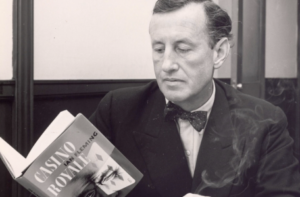
Acquiring a name for his protagonist was simple enough. When cosmopolitan visitors to Goldeneye found themselves a little bored by the repetitive, tropical languor, Fleming suggested some bird watching accompanied by the book Macmillan’s Field Guide to the West Indies by James Bond, a volume that sat prominently on a shelf near Ian’s desk. Fleming deliberately wanted a simple name for a character that he described as “an anonymous blunt instrument wielded by a Government Department.”
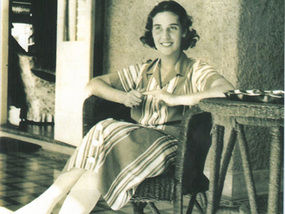
Most likely, this aspect of the annual Jamaica sojourn did not go well, as Ann Fleming would return home in less than a month. It was probably about this time that Fleming returned to his philandering ways, involving himself with an exotic, wealthy Jamaican neighbor, Blanche Blackwell, a formerly platonic friend who had at some indistinct moment became his lover. Blanche’s family was among the most prominent of Jamaica’s colonial hierarchy and she was the carefree counterpart to Fleming’s wife’s combative tension. Part of Ann’s discomfort, hostility and early return to Britain may have been her acknowledgement of this situation.
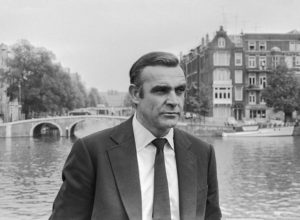
Ian Fleming stayed out of most of the major decisions revolving around the production of Dr. No. He had no interest in composing the script and while he suggested first David Niven and then Roger Moore as the leading man, Broccoli had other ideas. As Bond, he cast a relative unknown Scot, Sean Connery and plucked Ursula Andress out of total obscurity for the role of Honey Ryder.
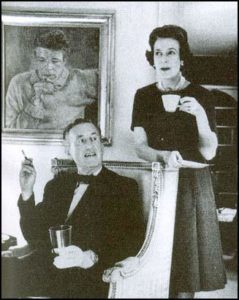
On August 11, after dinner with his wife and a friend, Fleming suffered another massive heart attack. Although he was coherent enough to joke with the ambulance driver who took him to the hospital, he would die in the early morning hours of August 12, aged 56. It was also his son’s twelfth birthday.
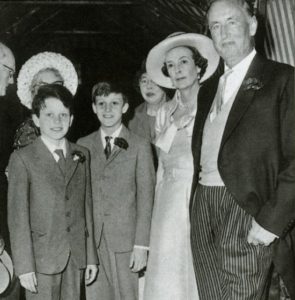
Although Ian Fleming died on top of the publishing world, his wife and son would both experience great unhappiness following his death. Although his son showed some academic promise as a teenager, he was expelled from Eton for, among other things, possessing loaded firearms in his dorm room. He left Oxford after two years, accessed his trust fund at age twenty-one and quickly became an intravenous drug user. He would commit suicide by a drug overdose of barbituates at his mother’s London apartment on October 2, 1975, aged 23.
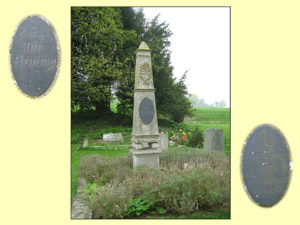
Never having come to terms with her relationship with her husband, Ann Fleming was plunged into deep depression and alcoholism after the death of her son. She passed away from cancer at age 68, on July 12, 1981, at her home, Sevenhampton Place. Today the mansion is owned by an auto racing magnate.
Podcast: Play in new window | Download
Subscribe: RSS
